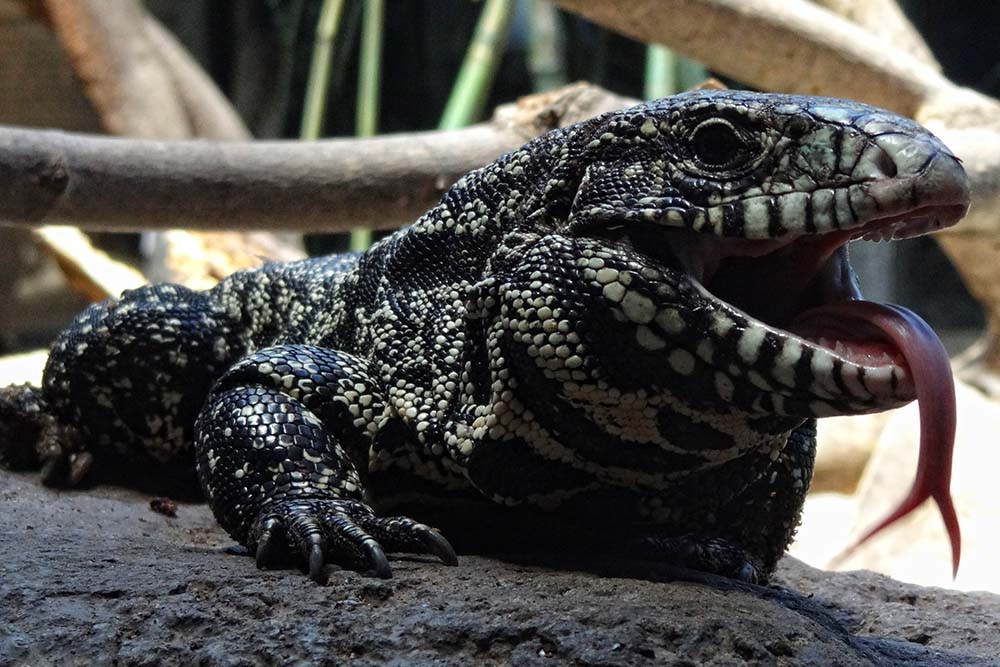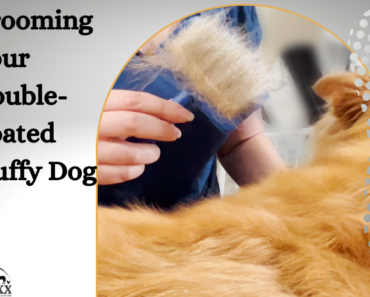
The Importance of Understanding Tegu Lizard Lifespan
Tegu lizards are fascinating creatures that are native to South America. They are known for their unique characteristics, such as their large size, sharp teeth, and strong jaws. These reptiles can grow up to four feet in length and weigh up to 15 pounds, making them one of the largest lizard species in the world.
Understanding the tegu lizard’s lifespan is crucial for anyone who owns or plans on owning a pet tegu lizard. These animals can live for many years when properly cared for, but they also have specific needs that must be met to ensure a long and healthy life.
One important aspect of the tegu lizard lifespan is their ability to adapt to different environments. In the wild, these lizards can be found in a variety of habitats including forests, savannas, and grasslands.
They are able to adjust their behavior and diet according to their surroundings, which has helped them survive in different regions across South America. Another unique characteristic of tegu lizards is their intelligence.
They have been known to recognize and respond to human voice commands, as well as learn basic skills like how to open doors or escape from enclosures. This intelligence makes them popular pets among reptile enthusiasts.
In addition to being intelligent creatures with impressive physical attributes, tegu lizards also have complex social behavior that involves communication with other lizards using various sounds and body movements. Understanding this social behavior is essential when caring for pet tegus since they require ample space and stimulation for optimal health.
Overall, understanding the lifespan of your pet tegu lizard is essential for providing proper care throughout its lifetime. By creating an optimal environment that meets its physical and behavioral needs while also providing proper nutrition and medical care as needed, you can ensure a long and happy life for your beloved reptilian companion.
Average Lifespan of Tegu Lizards in the Wild and in Captivity
Tegu lizards are fascinating creatures that can live for a relatively long time compared to other reptiles. In their natural habitat, tegu lizards can live up to 15-20 years, but it is not uncommon for them to live longer under optimal conditions. In captivity, tegu lizards can live even longer than their wild counterparts if they receive proper care and attention.
The lifespan of a tegu lizard depends on several factors, including diet, habitat quality, and genetics. It’s important to note that captive-bred tegus tend to have a longer lifespan as they are less likely to have been exposed to diseases or poor living conditions.
Diet
Diet plays a significant role in determining a tegu lizard’s lifespan. A well-balanced diet consisting of high-quality protein sources such as insects, rodents, and other small animals like chicken hearts and liver can significantly increase the life expectancy of your pet. It is important not only to feed your lizard the proper types of food but also to ensure that you offer it regularly so that it consumes enough calories every day.
Habitat Quality
The quality of the environment where your tegu lizard lives is another factor that affects its lifespan. Tegus need sufficient space in their enclosure where they can move around freely and engage in natural behaviors like basking under ultraviolet light or burrowing in substrate bedding material fully. Also, maintaining proper temperature gradients between day and night cycles helps ensure healthy metabolism, contributing positively to extending their life span.
Genetics
Each individual type or subspecies has its own genetic makeup which influences its potential lifespan greatly. Some may be more prone to particular health issues while others may have stronger immune systems which promote greater longevity. Understanding the genetics of the tegu lizard that you own can help you provide appropriate care and management to help them live their fullest life.
Tegu lizards have a relatively long lifespan compared to other reptiles. The average lifespan of these fascinating creatures in the wild ranges from about 15-20 years, but they can live significantly longer if placed in optimal conditions while in captivity.
Factors such as diet, habitat quality, and genetics all play a role in determining how long your pet will live. By providing good nutrition, an appropriate environment, and regular veterinary care for health maintenance, owners of tegus can help their pets enjoy a healthy long life.
The Aging Process of Tegu Lizards
Tegu lizards, like all living beings, go through an aging process. As a tegu lizard ages, it may experience changes in behavior and physical appearance that indicate it is entering its twilight years. Understanding these changes is crucial in caring for an aging tegu lizard to ensure they maintain their health and quality of life.
Signs of Aging in Tegu Lizards
One of the most noticeable signs of aging in tegu lizards is a change in behavior. As they age, they may become less active and spend more time basking under their heat lamp or resting in their hide box.
They may also become more irritable or aggressive as their energy levels decrease. Physical changes are also common as tegu lizards age.
They may begin to lose muscle mass and develop loose skin around their legs and neck. Their skin may become thicker and drier, causing shedding to become less frequent.
In addition to these changes, older tegus may develop health problems such as arthritis or organ failure. Symptoms of these conditions include difficulty moving around and decreased appetite or activity levels.
How to Care for an Aging Tegu Lizard
If you have a pet tegu lizard that is showing signs of aging, there are several things you can do to help them stay healthy and comfortable. Providing them with a warm environment that mimics their natural habitat can help ease joint pain caused by arthritis.
You can also modify their diet to accommodate any digestive or metabolic issues they may be experiencing as they age. This could mean feeding them smaller meals more frequently throughout the day instead of one large meal at once.
Regular veterinary check-ups are also important for aging tegus to catch any potential health problems early on and provide appropriate treatment. Overall, providing your aging tegu lizard with a comfortable environment, appropriate nutrition, and regular veterinary care can help them live out their golden years in comfort and good health.
Common Health Issues That Can Affect Tegu Lizard Lifespan
Tegu lizards are quite hardy and generally have strong immune systems, but they can still develop health problems like any other living creature. In order to ensure that your pet lives a long and healthy life, it is important to be aware of common health issues that can affect tegu lizards.
Diseases and Health Conditions That Are Common in Tegu Lizards
Respiratory infections, metabolic bone disease, and parasitic infections are some of the most common health problems that tegu lizards can experience. Respiratory infections are caused by bacteria or viruses that affect the respiratory tract. Symptoms include wheezing, coughing, runny nose, and lethargy.
Metabolic bone disease occurs when a lizard’s diet does not provide adequate calcium or vitamin D3, resulting in weak bones and muscle weakness. Parasitic infections can be caused by mites or ticks that feed on the lizard’s blood or intestines.
Preventative Measures to Ensure a Long and Healthy Life for Your Pet Tegu Lizard
The best way to prevent health problems in your pet tegu lizard is to provide it with proper care and nutrition. Make sure your lizard has a clean environment with plenty of space to move around freely. A healthy diet should consist of high-quality protein sources like insects and rodents as well as vegetables and fruits for vitamins and minerals.
Regular veterinary check-ups are also important for preventing health issues. Your vet can perform routine exams to detect any potential problems early on before they become more serious.
They can also provide guidance on how to properly care for your pet’s specific needs. In addition to proper care, maintaining good hygiene practices is crucial in preventing diseases from spreading amongst your reptile pets.
Ensure their habitats are cleaned regularly and avoid housing reptiles of different species in one enclosure. By being aware of common health issues and taking preventative measures, you can help ensure that your pet tegu lizard lives a long and healthy life.
Tips for Extending Your Tegu Lizard’s Lifespan
Proper Diet and Nutrition for Your Pet Tegu Lizard
When it comes to feeding your pet tegu lizard, it is important to provide a balanced diet that meets their nutritional needs. These lizards are omnivores, meaning they eat both plants and animals.
A good rule of thumb is to offer a diet that consists of 50% animal protein and 50% plant matter. For animal protein, you can feed your tegu lizard crickets, mealworms, super worms, pinkie mice, boiled chicken or turkey, and even scrambled eggs.
For plant matter, you can offer leafy greens like collard greens or kale, vegetables like squash or sweet potato, and fruits like strawberries or blueberries. It’s essential to avoid feeding your tegu lizard foods that could harm them.
Don’t feed them anything with seeds since these can cause intestinal blockages. Also avoid feeding them food high in fat such as fast food leftovers – this type of food could lead to obesity which could impact their lifespan negatively.
Creating an Optimal Habitat for Your Pet To Thrive In
Providing an optimal habitat is essential for your pet tegu lizard’s health and well-being. A well-crafted enclosure will make sure that they have enough space to move around freely while also providing a safe environment for exploration. The enclosure should be big enough so that the lizards have plenty of room but not so large that they cannot easily find their food or basking spot.
They should also have a basking spot with UVB lighting where they can absorb vitamin D from sunlight which is critical for their bone health. The temperature should be maintained at around 75-85 degrees Fahrenheit during the day while dropping down slightly at night.
You may want to add a hiding place or two in the enclosure so that your tegu lizard can retreat to a secure location when they feel threatened or stressed. Make sure their enclosure is kept clean and tidy since they’re prone to infections.
Regular Veterinary Check-ups and Preventative Care
Regular veterinary checkups are crucial for ensuring your pet tegu lizard stays healthy, especially if you observe any signs of declining health. The vet will carry out general physical examinations and fecal exams to screen for diseases.
The vet may also recommend bloodwork to assess overall health or even x-rays as needed. Preventative care is also essential such as regular deworming which can help prevent parasitic infections that could impact lifespan negatively.
In addition, it’s critical to keep their enclosures clean and free from bacteria, parasites, fungi, and viruses which decrease the chances of illness. Regular cleaning with disinfectants and sterilizers helps maintain good hygiene in the area where your pet spends most of its time.
Caring for a pet tegu lizard takes dedication but nothing compares to seeing them thrive under your care. Creating an optimal habitat with proper lighting, heating, food, and water supply while cleaning regularly is key when it comes to extending their lifespan.
Regular veterinary checkups are another essential aspect of keeping them healthy throughout their entire life span. With the right approach in mind, you can raise a healthy, happy tegu lizard who will be part of your family for many years to come.
Conclusion
Tegu lizards are amazing creatures that can make great pets. They are intelligent, social, and have a long lifespan. In the wild, tegus can live up to 12 years on average.
However, with proper care and attention, they can live up to 20 years or more in captivity. There are several factors that affect the lifespan of a tegu lizard.
These include its diet, habitat, genetics, and overall health. As responsible pet owners, it is our duty to ensure that our pets receive proper nutrition and care for their entire life.
It is important to note that owning a tegu lizard requires a significant commitment. They need specialized diets, large enclosures with specific environmental conditions such as temperature and humidity levels, and regular veterinary check-ups.
Emphasis on the importance of responsible ownership when it comes
Owning a Tegu lizard is not for everyone. Before deciding to bring one into your home, you should understand their unique needs and requirements. Tegus require time-consuming care including regular cleaning of their enclosure, feeding them appropriate food items in appropriate quantities based on age/size/sex/health status, etc., and providing adequate access to UVA/UVB light sources for proper growth & maintenance of healthy skin & bones etc.
As responsible pet owners, we must do everything we can to provide them with everything they need in order to thrive throughout their entire lives. This includes creating an optimal environment for them so they can flourish both physically and mentally.
By taking good care of your pet tegu lizard throughout its life you can ensure it enjoys long-lasting health & happiness.
Remember: adopting any animal brings an important responsibility that deserves serious consideration before making such commitments. If you’re willing (& able) to support a tegu lizard throughout its lifespan it can be a rewarding experience for both you and your pet.


























